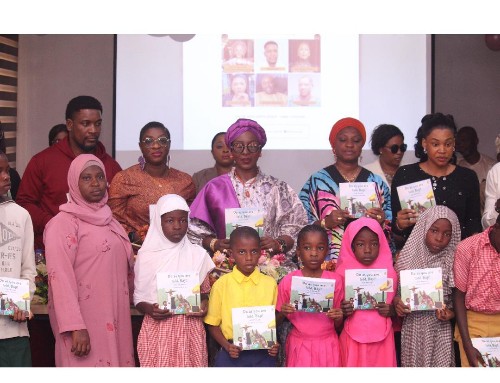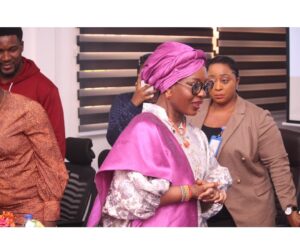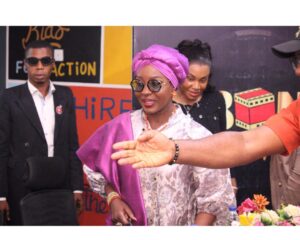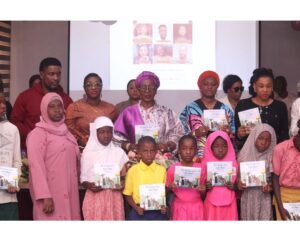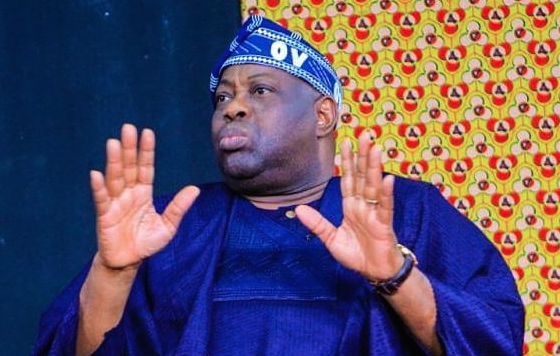The Nigerian Communications Commission (NCC) has said that in view of the recent development in which misleading materials with no proven evidence are being circulated to link CORONAVIRUS or COVID-19 with 5G Technology, it has become imperative for it to provide the following clarifications;
”Firstly, there is no correlation between 5G Technology and COVID-19. 5G is an advancement in today’s 4G technology designed to transform the world positively.
Secondly, there is no deployment of 5G in Nigeria at the moment. The NCC back in November 2019 approved a trial test for 5G for a period of three (3) months and that the trial has been concluded and installation decommissioned.
The trial among others was to study and observe any health or security challenges the 5G network might present. Relevant stakeholders including members of the security agencies were invited to participate during the trial.
The NCC will continue to maintain its policy of technology neutrality and will continue to encourage Service providers to deploy the best technology that will meet the needs of the society in a secure and friendly manner.
The following are some Frequently Asked Questions :
1. What is 5G?
Ans: 5G is the fifth generation of mobile technology which is an improvement of today’s 4G technology with enhanced capabilities. 5G technology provides the platform for new and emerging technologies such as the Internet of Things (IoT), Artificial Intelligence (AI) and Big Data to improve the way we live and work.
2. Do we have a 5G network in Nigeria now?
Ans: No there is no 5G network in Nigeria at the moment. What we had was a trial test for 3 months which has since been concluded.
3. When are we expecting 5G in Nigeria?
Ans. No exact time frame but when conditions are right and all doubts are cleared.
4. Do we have a spectrum for 5G in Nigeria?
Ans. Yes, particularly the millimeter-wave spectrum from 24GHz and above are available.
5. Have we given out 5G spectrum to operators?
Ans. No. It will be auctioned at the appropriate time.
6. Is there 5G deployment around the world?
Ans. Yes, in countries like South Korea, China, USA, Germany, and others since middle of 2019.
7. Is the Radiation from 5G different from those of 2G, 3G, and 4G?
Ans. No, they all belong to the same class of Non-ionizing Radiation.
8. Who is going to Allocate spectrum for 5G in Nigeria?
Ans. The National Frequency Management Council (NFMC) Chaired by the Hon Minister of Communications and Digital Economy has the responsibility for allocating bulk spectrum for various services.
9. Should I be concerned about 5G technology?
Ans. No, nothing to worry about. Safety and human health are top priorities in the design and deployment of 5G.
10. What are the benefits of 5G?
Ans. 5G technology will transform the world by connecting everything with everybody. It will create millions of jobs, it will add billions of dollars to the economy (GDP) and can solve some of our problems such as insecurity and improve governance and efficiency in society.
11. Is 5G causing CORONAVIRUS or COVID-19?
Ans. No, there is no link what so ever between 5G and CORONAVIRUS or COVID-19.
12. Should I ignore all the negative narratives I am hearing about 5G ?
Ans. No, but rely on information from world Standards making bodies such as WHO, ITU, IEEE and industry experts for advice when in doubt.
13. Is there a Standard limit set for Radiation from mobile devices?
Ans. Yes, there are Radiation emission limits set by the International Commission for Non-ionizing Radiation Protection (ICNIRP) below which the radiation is considered safe for humans.
14. Are the mobile network operators in Nigeria conforming to the Radiation emissions limits?
Ans. Yes, the NCC has been regularly conducting measurements of Radiation emissions from Base stations across the country and they are all well below the set limits.
15. Is 5G the same as Fibre cable?
Ans. No, fibre cable is a terrestrial technology for broadband that existed for decades while 5G is a new mobile technology for enhanced quality of service as explained in Q1 above.
16. Are there other sources of Radiation apart from mobile Base stations?
Ans. Yes, there are other sources of Radiation which include television stations, radio broadcast stations, wifi and so on. They all belong to the class of Radiation considered to be safe for humans when operated below the set limits.
17. Who owns 5G?
Ans. 5G is not owned by anybody but a collection of technologies, Standards and processes agreed at the international level by Standards making bodies.
18. Has NCC issued licenses for 5G in Nigeria?
Ans. No, NCC has not issued any license for 5G in Nigeria. NCC is technology-neutral as such we don’t license technology but assigns spectrum to operators for deployment of any service when allocated by NFMC.
19. Why are some operators rolling out fiber during the lockdown period?
Ans. As a result of the lockdown, the amount of voice and data usage has increased by huge amounts and there is a need to expand the network to provide optimum quality of service to users sitting at home. Telecom is also critical for information dissemination during the lockdown.”

 BIG STORY4 days ago
BIG STORY4 days ago
 BIG STORY2 days ago
BIG STORY2 days ago
 BIG STORY3 days ago
BIG STORY3 days ago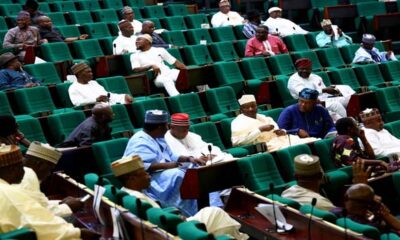
 BIG STORY4 days ago
BIG STORY4 days ago
 BIG STORY2 days ago
BIG STORY2 days ago
 BIG STORY12 hours ago
BIG STORY12 hours ago
 BIG STORY2 days ago
BIG STORY2 days ago
 BIG STORY13 hours ago
BIG STORY13 hours ago



















